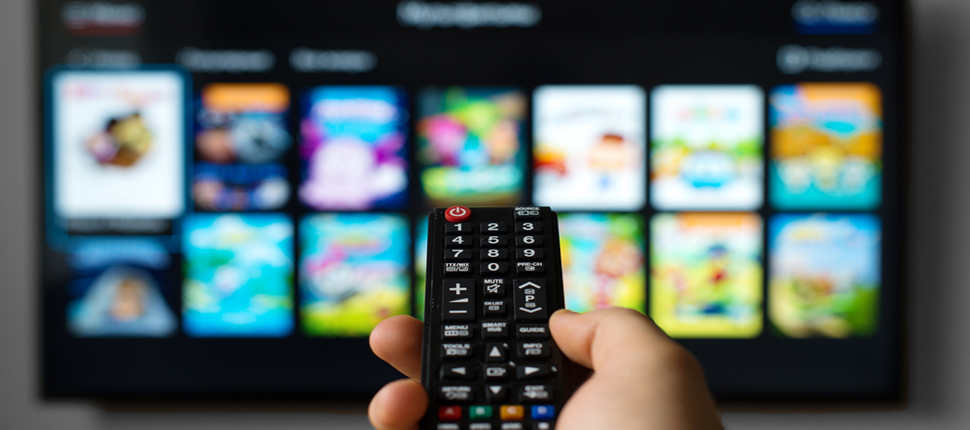Just How Nosy is Your Smart TV – and Who’s It Snitching To?

You’ve got a Smart TV. And maybe you got a great deal on it – there have been some awesome bargains out there over the past few years. But who’s profiting from all that “smartness”? You, or someone else?
Well, maybe both. Your internet-connected Smart TV helps you sort through, organize, and choose from massive amounts of programming to find just what you’re in the mood for. Suddenly you’ve got big-screen YouTube, maybe gaming features, and a convenient way to access media content on your computer or smartphone. Maybe your Smart TV even responds magically to your voice commands.
This is indisputably cool. But is your behavior being tracked in ways that dumber TVs never imagined?
What’s being tracked?
When you accept your Smart TV’s privacy policy, you’re usually accepting at least some ongoing data communication and tracking. (For example, your TV will probably report when you use an app, such as Netflix.) But the really supercharged tracking occurs when you say “Yes” to “Automated Content Recognition (ACR).”
Once you’ve consented to ACR tracking, your TV will “read” the pixels that appear on your screen every second, and figure out what you’re watching – whether you’re watching a cable or streaming service, playing a PlayStation game, watching a DVD, or even using an antenna to watch an over-the-air broadcast. That data is sent to the TV manufacturer and/or its business partners, who use it for precision marketing and advertising targeting.
Smart TV manufacturers and ACR providers say this information helps them make better content recommendations so you have a better viewing experience. They also promise not to collect “personally identifiable information.” But they collect your device’s IP address, and can reach across your home network to identify other devices you own. Along the way, they capture enough details that you might well be personally identifiable if someone were determined enough to try.
What does ACR tell about you?
Even without your name, the ACR company may be able to build a profile of you that’s unique or nearly unique – especially when it links your data with third-party databases that track personal locations, purchasing actions, and other aspects of consumer behavior.
Using ACR, marketers can also “re-message” you across your other devices. If you’ve watched an ad for a pizza delivery chain on a cable channel, you’re immediately exposed to a coupon from that chain as you browse the web on your smartphone. Suddenly, TV advertising becomes personalized in the same creepy ways web users are familiar with.
Steps to protect your information
If you don’t like it, what can you do? First, if you’re buying a new Smart TV, don’t just accept all the agreements it presents to you. Reject ACR – or anything that sounds like it. (For example, over the years, Samsung has variously called ACR “Viewing Information Services,” “Interest-Based Advertising,” or “SyncPlus and Marketing.”) If you’ve already set up your TV, go into the Settings (or System) menu and look for the appropriate settings to disable ACR. Those vary by set, but this quick guide may help you find them:
LG: All Settings → General → LivePlus (with additional settings under All Settings → General → About This TV → User Agreements).
Roku-based TVs (e.g., TCL): Settings → Privacy → Smart TV Experience and Settings → Privacy → Advertising.
Samsung: Settings → Support → Terms & Policies.
Sony: Run Settings → Initial Setup again as you did when you first set up the TV, and look for the Samba “Interactive TV” user agreement.
Vizio: System → Reset & Admin → Viewing Data.
One last tip, courtesy of the router manufacturer pcWRT: to keep your Smart TV from discovering and linking with other devices on your network, consider using your router to set up a separate subnetwork that only hosts the Smart TV itself. (If you’re really feeling technical, it’s possible to use tools like Wireshark to figure out what web addresses your Smart TV continually sends data to, and block those.)
Recently, one TV manufacturing executive candidly admitted that he can sell Smart TVs essentially at cost, because he intends to make his money on all the consumer data they’ll be collecting later. That’s why those TV deals are so good: you’re the product!